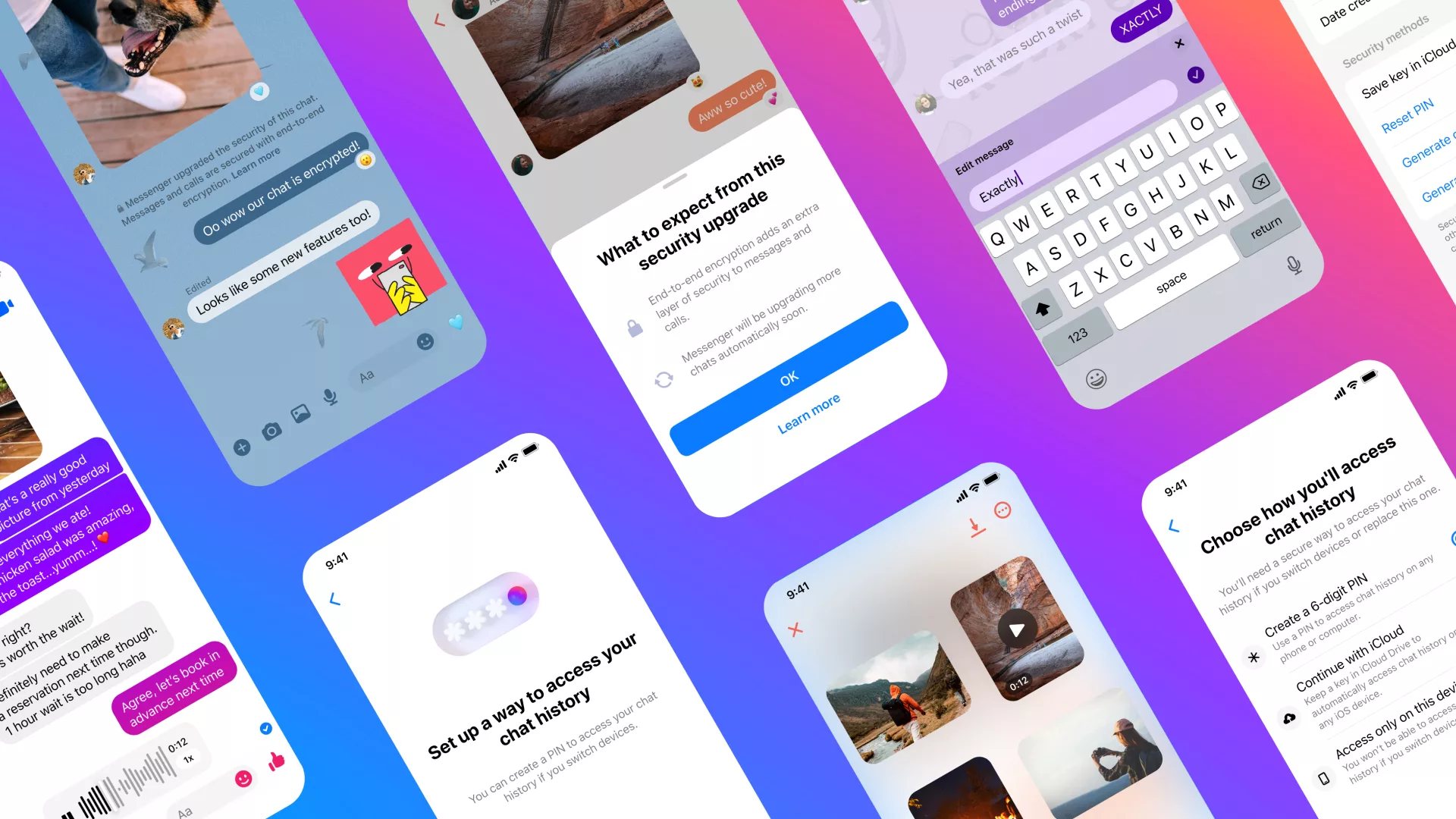
Meta starts rolling out end-to-end encryption on Messenger
Meta has started rolling out default end-to-end encryption for all personal messages and calls on Messenger and Facebook, and this will be joined by a host of new features that allows for further user control of their messaging experience. Loredana Crisan, the Vice President for Messenger, made the announcement, marking a significant milestone in Meta’s commitment to user privacy.
“We take our responsibility to protect your messages seriously and we’re thrilled that after years of investment and testing, we’re able to launch a safer, more secure and private service,” Meta wrote in an official statement. “This has taken years to deliver because we’ve taken our time to get this right,” Crisan added in the statement. “Our engineers, cryptographers, designers, policy experts and product managers have worked tirelessly to rebuild Messenger features from the ground up.” E2EE is already an optional service that users can choose to use on Facebook or Instagram.
At the heart of this encryption overhaul is a strategic fusion of the Signal protocol, renowned for its security prowess, and Meta’s proprietary Labyrinth protocol. The results of Meta’s choice on adopting battle-tested encryption methodologies, coupled with the integration of an in-house protocol tailored to the unique demands of its expansive communication ecosystem will be interesting to see. While Messenger has allowed users to opt for encrypted messaging since 2016, the latest move propels private chats and calls into default end-to-end encryption (something that is long overdue).
This strategic shift also implies that Meta, by default, will no longer have access to the content of user communications. An exception exists, however, where a user opts to report a message, allowing Meta visibility into the reported content. The decision to shift to default encryption, initially slated for 2022, faced delays amidst concerns over its potential impact on Meta’s ability to combat child abuse content.
While the new features, including default end-to-end encryption, are immediately available, the sheer scale of Meta’s user base necessitates a phased rollout. Users will be prompted to set up recovery methods as the transition unfolds. The move to default end-to-end encryption is also poised to raise concerns, particularly among law enforcement and child protection groups. Users, by default, gain an added layer of security, ensuring that the content of their communications remains confidential, visible only to the intended recipients. With Meta relinquishing access to message content, users can also enjoy enhanced autonomy over the privacy of their conversations.
In similar news, a host of fresh features will be coming to Messenger as well. This includes giving users the ability to edit a message up to 15 minutes after sending, speed control for voice messages to play those audio clips at 1.5x or 2x, and new photo and video layouts. A new read receipt control is also coming to let users decide if they want others to see when their messages have been read. Finally, an improved interface has come to disappearing messages, which now last for 24 hours after being sent.


